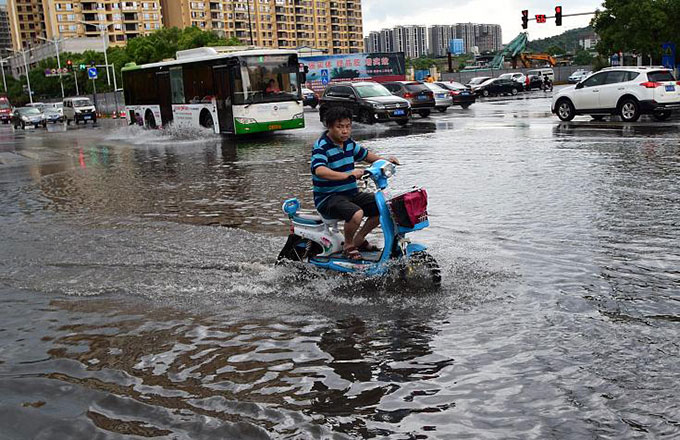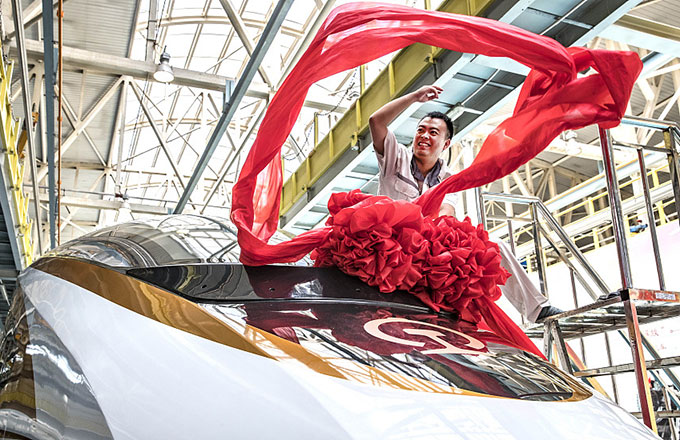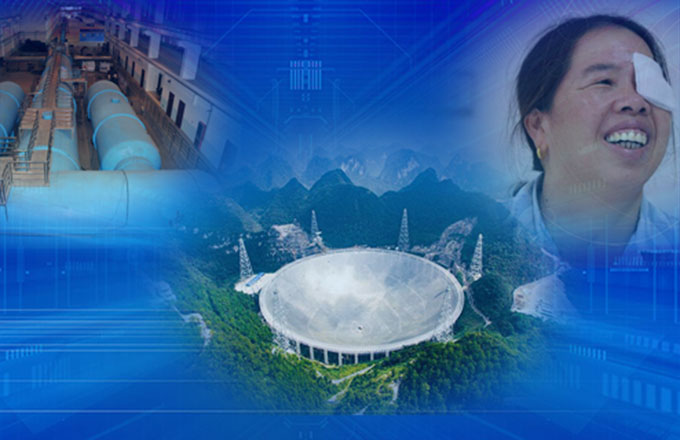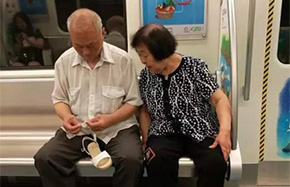Xi will visit Hong Kong for festivities
20th anniversary, inauguration show how far SAR has come, president says
President Xi Jinping will embark on a three-day trip to Hong Kong on Thursday to attend a ceremony marking the 20th anniversary of Hong Kong's return to China.
Xi also will attend the inauguration of the fifth administration of the Hong Kong Special Administrative Region.
Leung Chun-ying, chief executive of Hong Kong, extended his welcome and gratitude to the president on Sunday. Chief executive-elect Carrie Lam Cheng Yuet-ngor also welcomed the visit.
"President Xi's visit to the SAR at this important moment to attend the celebration activities and the inauguration ceremony fully shows the importance that the central authorities attach to and their support for Hong Kong," Leung said.
Over the past 20 years, with the support of the central government, Hong Kong has successfully implemented the principle of "one country, two systems", "Hong Kong people administering Hong Kong" and a high degree of autonomy. The SAR has made progress in various areas, he said.
July 1 marks the 20th anniversary of Hong Kong's return from British rule and the establishment of the SAR.
"Over the past two decades, great success has been achieved in the implementation of the ‘one country, two systems' principle in Hong Kong," Xi said in April while meeting with Lam at the Zhongnanhai leadership compound in Beijing.
Noting that Hong Kong has experienced "ups and downs" during the past two decades, Xi said that Hong Kong faces challenges and risks as well as opportunities and hopes.
"The special administrative region system, stipulated in the Constitution as well as the Basic Law, operates effectively, and Hong Kong continues to enjoy prosperity and stability, winning high praise from the international community," Xi said.
Zhang Xiaoming, director of the Liaison Office of the Central People's Government in the SAR, said that over the past 20 years, Hong Kong has remained a center of international finance, shipping and trade, and has been recognized as the world's freest economy and most competitive region.
"If you see the accomplishments against a background of the Asian and global financial crises and the SARS outbreak, and in comparison with other developed economies, you will know the achievements have not been easy," said Zhang.
Wang Lei, a professor of Hong Kong laws at Peking University Law School, said that via the successful implementation of "one country, two systems" in Hong Kong, China has set a paradigm of peaceful unification of the nation, which could be learned by others.
The president has attached great importance to improving the livelihoods of those living in Hong Kong in sectors such as land and housing, senior care and poverty relief.
While meeting with Leung in December in Beijing, Xi said that as Hong Kong develops steadily in social, political and economic terms, the central government as well as Hong Kong residents all can hope for a better economy and improved livelihoods, a harmonious society and happy life for the people.
In July 2008, Xi, then vice-president, paid a 49-hour visit to Hong Kong. During the trip, Xi visited two local families and talked with the residents about such issues as housing prices, mortgage loans, incomes and commodity prices.
The "one country, two systems" principle is in line with interests of the country, the well-being of Hong Kong people and the common aspiration of the entire Chinese people, Xi said in his meeting with Leung in December.
He pointed out that in such significant matters as containing "Hong Kong independence" and handling street violence according to law, the SAR government has strictly followed the Basic Law, the interpretation of the Basic Law by the National People's Congress Standing Committee, and laws of the SAR.
The central government firmly supports the SAR government in its work to contain "Hong Kong independence" according to law, Xi said.
During a gathering to commemorate the 150th anniversary in November 2016 of Sun Yat-sen's birth, Xi said that "any attempt to split the country will be resolutely opposed by all Chinese people".
In April, the president expressed his hope to Lam, who will be sworn in on Saturday, that she would live up to the great trust, rely on the people of Hong Kong, comprehensively and precisely implement the principle of "one country, two systems" and the Basic Law, and contribute to the development of Hong Kong.
Zhang, the SAR Liaison Office director, said Hong Kong will benefit from the country's three major development initiatives: the Belt and Road Initiative, the internationalization of the renminbi, and the building of the Guangdong-Hong Kong-Macao Greater Bay Area.
"On the express train of a robust economic growth, the country has reserved a seat for Hong Kong," Zhang said, stressing that Hong Kong should dovetail its strengths with the country's needs to achieve greater development.
Zhang Dinghuai, a professor of Hong Kong and Macao studies at Shenzhen University, said the Guangdong-Hong Kong-Macao Greater Bay Area will bind the mainland cities with Hong Kong and Macao more tightly, creating opportunities.



















